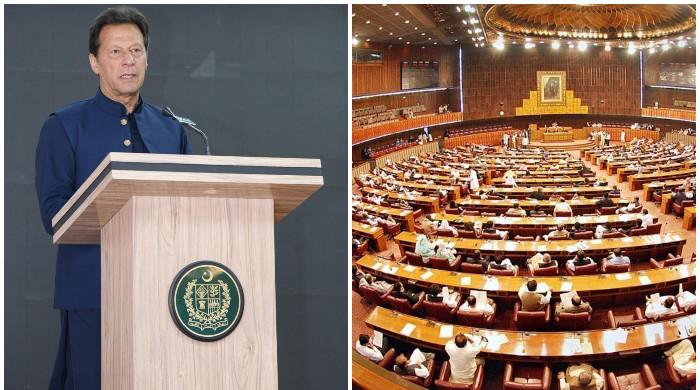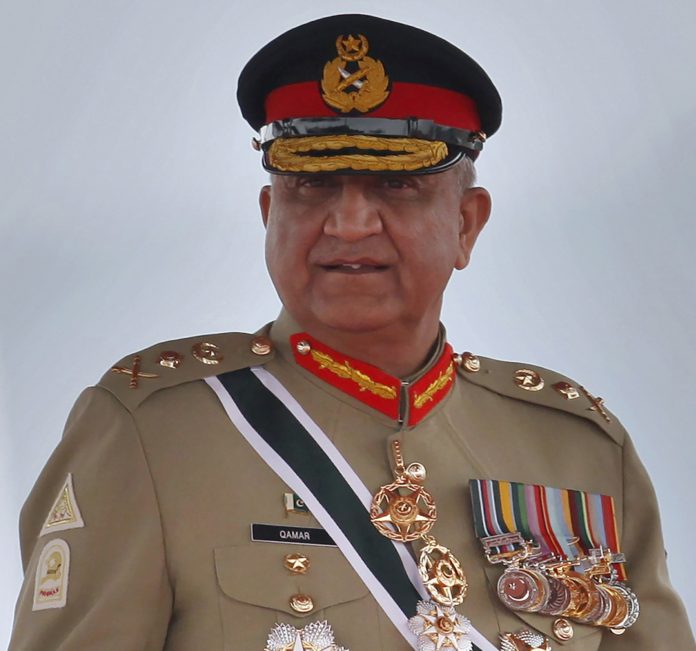While the political upheaval in the country is reflective of the will of the people who desire to rid themselves of both corruption and the status quo, our core “National Interest” certainly cannot be embedded in emotional arguments. A majority of Pakistanis suffer from inequality and injustice prevalent in our feudal society, the feudal mentality does not reward merit over relationship. The consequent great loss to the country is of talented and competitive people who go off to greener pastures. Like many developing countries, including some of the Arab states, Pakistan has a relatively weak state structure. The army therefore is an essential means to uphold both external and internal security. On the other hand, civilian power, as the fall of the PTI govt has shown, needs the unstinting support of the military.
The unqualified support of the armed forces, particularly in a Muslim country where their role is far more than in other countries, is necessary not only for the state to succeed but the 2011 Arab uprisings have clearly defined why a united military is a necessity for the govt in power. Examine the role of the military in the six Arab states where significant bloodshed took place, grouping them into three categories according to how the regular military responded to the revolt. Viz (1) In Tunisia and Egypt the soldiers backed the revolt, (2) in Libya and Yemen they split, and (3) in Syria and Bahrain they turned their guns against the demonstrators. Doomsday scenario is where the army split, like it happened in Libya and Yemen, and is still happening more than a decade later.
Fragmented when faced with the civil uprising, the Libyan Armed Forces disintegrated despite having an impressive arsenal for such a small country, more than 4,000 tanks and other armoured vehicles and 400 combat aircraft. With Libya’s interim government having failed in reuniting the army, the chaotic civil war is continuing a decade later. Army defectors in large numbers and mercenaries participating from neighbouring African countries make up rebel militias. Various factions are being supported by one or the other superpower, hungry for Libyan oil. With plentiful arms and ammunition available in the civilian sphere, a disaster of much greater magnitude could threaten Pakistan.
The ongoing nasty critique of the Pakistan Army, and Gen Bajwa in particular, in the social media is neither receding nor is it acceptable. The Army and its COAS are one and the same! A completely wrong motivated perception is being bandied about the Army’s tilting away from Imran Khan, previously supporting him, was changed under US pressure. It was a collective decision of the army high command not to interfere, not Gen Bajwa’s alone, as it should be.
Imran Khan’s perceived anti-American policy (which started as mostly political rhetoric) has seemingly driven a wedge between the army and the civilian part of society. We cannot become party to incitement of emotions in any manner whatsoever. The unity of command within the army is vital for the continued existence of the State. All individual groups and/or institutions that intentionally or unintentionally undermine this unity are undermining the internal security of Pakistan. A divided and thus weakened military consequently weakens the state and governance. Nobody has denied the minutes of the discussions of the famous lunch in Wash DC. Subsequent NSC meetings first under Imran Khan and then later under Shahbaz Sharif, exercised deep concern about the remarks of the US official concerned which is reflected by the decision for the demarche to the US. The US did not (and cannot) influence the Pakistan military. Do you think for one moment we would still have a nuclear deterrent if the US could actually orchestrate our military’s actions?

The “conspiracy” theory is because the opposition conveniently used the opportunity to launch their plans for a long threatened “vote of no confidence”. The time lag of about 2-3 weeks between the Wash DC meeting and Imran’s disclosure unfortunately fed the “conspiracy” theory. The motivated perception being aired about a “split” is an inherent danger to the very existence of the Pakistani state especially so in the current crisis, with rising prices and food and water shortages looming when Pakistan might default in the absence of the next IMF tranche. This country cannot afford army double-think on what constitutes national security. There is an absolute need for the army’s unity of command not be disturbed and for them to uphold internal security without any ambiguity whatsoever. Incidentally the army cannot afford to get its reputation tarnished by being clubbed for internal security with a known criminal enforcing the law through outright thugs. When a criminal functions in the name of justice, justice becomes a crime!
Imran Khan must get the credit for challenging our suffocating status quo. But both he and his followers must not lose sight of reality and truth. His attractive slogans give hope to common man and raise their expectations, and they have every right to demand their rights, particularly about accountability. In his “Jihad” against corruption he is being portrayed as a Messiah of sorts. On the other hand, anybody not standing with him is viewed as traitor, that is not correct. This divide in Pakistani society being deepened and further being aggravated is very dangerous. The process and arguments being used are the objectives of our enemy: (1) Deepen possible fault lines in Pakistani society (2) Create schism between Army and people of Pakistan (3) Create a wedge within the Army.
Having personally witnessed such hate politics in March 1971, the murdering spree in then East Pakistan was a precursor of the division of Pakistan in Dec 1971. God forbid we are far from being there yet, but it is time to reduce the mounting tension and hate. While we certainly cannot afford the Egypt and Tunisia situation, nor the Syria and Bahrain one, worst all of is the possible Doomsday “Arab Spring” scenario of Libya and Syria. A catastrophe was averted on 26 May early morning when Imran Khan realised that with many of his followers carrying personal weapons, a confrontation with the police would lead to a bloodbath. However, if the popular demand for fresh elections (that is a universal aspiration, not Imran Khan’s alone) is not met, we are still in for a vicious and bloody confrontation, the Federal Interior Minister is itching for a fight. Where will blood on the streets leave us? The stark choices facing the Army during the “Arab Spring” are before us.
The reality is we are in this morass due to the collective mistakes of past and present, of our establishment, judiciary, political forces, meek bureaucracy and because people who count in leadership positions did not stand up for a just cause. Faced with the political process at an impasse and possible bloody consequences, the military’s command structure have to act now to pre-empt catastrophe. The only option is that people must exercise their choice at the ballot box in a free and fair manner. Why not implement “the Kakar Model”?




